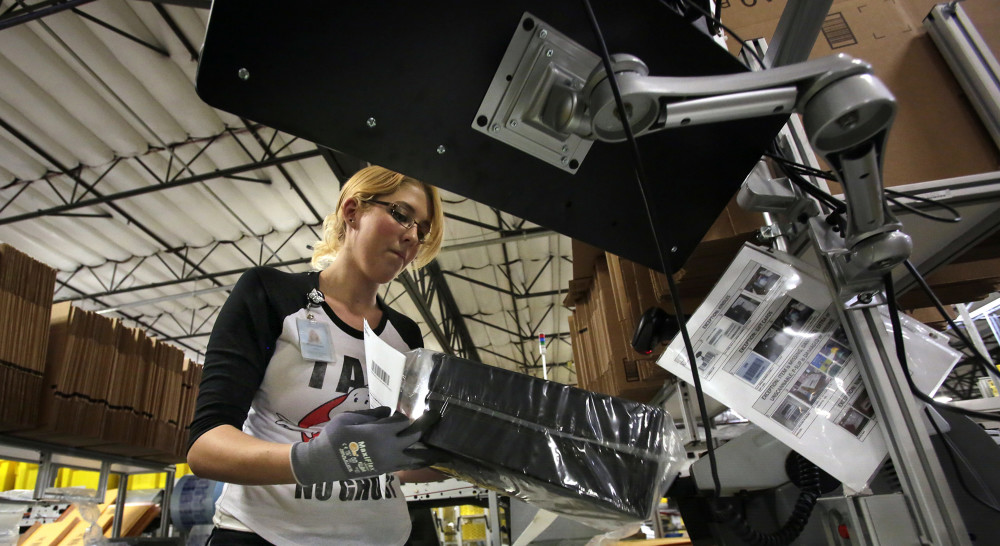EDITORIAL
The San Diego Union-Tribune
When Labor Day became a federal holiday in 1894, its purpose was straightforward: to celebrate the achievement and effort of American workers and their crucial role in building a prosperous, powerful nation.
Nowadays, however, the holiday has a melancholy feel created by a sense that the modern economy is morphing in ways that are exciting but also deeply foreboding.
For many economists and futurists, the old assumptions about improved technology and progress amounting to a tide that lifts all boats have given way to fear that we are on the brink of “an era of technological unemployment, in which computer scientists and software engineers essentially invent us out of work, and the total number of jobs declines steadily and permanently,” as Derek Thompson wrote in a recent cover story for The Atlantic magazine.
The robot revolution is real and more advanced in both demanding and menial tasks than most people think. Ever-shrewder algorithms can do the jobs of more and more white-collar workers; the 2013 analysis by two Oxford professors that robots and other advanced technology could handle 47 percent of the largest 700 professions now appears on the low side.
Self-driving cars, package-delivering drones and automated coffee kiosks have the potential to wipe out millions of service jobs.
The further grim news is that it appears that there will be financial and political muscle promoting these rapid changes, even if they have a wrenching effect on society. In his book “Rise of the Robots: Technology and the Threat of a Jobless Future,” former Silicon Valley entrepreneur Martin Ford writes that in many ways the rise of income inequality and extreme concentration of wealth among less than 1 percent of the nation are linked to technological advances and how they give a relative handful of powerful people the ability to control so much of the new wealth our economy creates.
The silver lining in this cloud is the hope that democracy rises to the challenge posed by this economic revolution — that our leaders find a way to maintain a broadly affluent society, one that uses lifelong career education opportunities to keep job skills fresh and that creates strong incentives for job creation.
For a powerful reason, this is not as Pollyannaish a hope as many might think. According to Detroit automotive lore from the 1950s, Ford CEO Henry Ford II once gave a tour of a new, far-more automated engine plant to United Automobile Workers President Walter Reuther.
Ford pointed to the machinery and said, “Walter, how are you going to get these robots to pay union dues?” Reuther replied, “Henry, how are you going to get them to buy your cars?
buy synthroid generic buy synthroid online no prescription
”
A nation without plentiful jobs is a nation without plentiful consumers. A nation in which there is a lopsided ratio between economic losers and economic winners is also very likely a deeply discontented nation. When our leaders navigate the coming disruption in our economy, their response should be shaped by these stark truths.














































































































































































































































































































































































